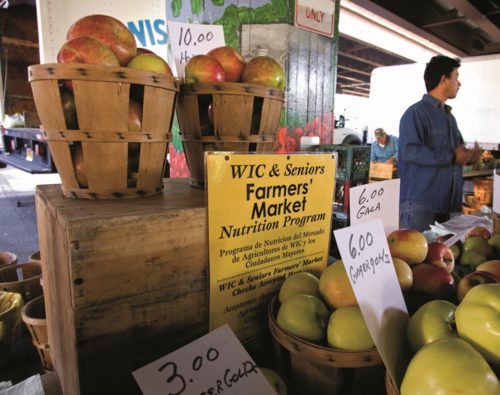By Shalom Khokhar
Growing up, my family and I would go grocery shopping on Saturdays. My favorite place to go was Sam’s Club because they always had free samples. From snacks to desserts, it was always fun to run to each stall and grab a quick treat.
Living in the United States has it perks, one of them being that food is readily available and conveniently located. So available and convenient, in fact, that we become unaware of the disturbing statistics that hit closer to home than we think.
A staggering 69 percent of people had to choose between food and utilities, and 57 percent had to choose between food and housing, according to the Hunger in America 2014 study by Feeding America. More recently, a fact sheet released by Bread for the World last month, reported that almost five million older Americans are food-insecure, representing almost 10 percent of the older population.
Case in point: Last month, Clarence Blackmon, an elderly gentleman from North Carolina, dialed 911 not because he was hurt, but because he was hungry! The 81-year-old returned home after several months in the hospital. With an empty refrigerator and no immediate help, he spoke with 911 operator Marilyn Hinson.
“He was hungry,” Hinson said. “I’ve been hungry. A lot of people can’t say that, but I can, and I can’t stand for anyone to be hungry.”
Support poured in for Blackmon, and people brought bags and bags of food to his home. A little awareness goes a long way.
Sometimes all it takes is a few questions to realize that hunger is a common occurrence even in today’s society. Last December, a family came to my church’s Christmas concert. It was a Hispanic family with two young boys and girls. Dad worked, and mom was pregnant.
After talking with the family, we found out that dad was fresh out of prison and addicted to methamphetamines, and that mom was basically a single parent raising four malnourished kids. They had no home and had been living in their van for three months.
The church was able to donate $400 to the family and get in contact with a few local food pantries for some much-needed groceries. Their van needed some repairs, so the church gave them a vehicle to use and paid for a motel room for one week. Mom eventually gave birth to a healthy baby, and a few people from the church went to visit her. The church also connected the family with a social worker who could help make things a little better.
Yes, it’s sad to hear these stories, but don’t just hear them, act on what you have heard!
Jesus said in Matthew 25, “For I was hungry and you gave me food, I was thirsty and you gave me something to drink, I was a stranger and you invited me in, I was naked and you gave me clothing, I was sick and you took care of me, I was in prison and you visited me…I tell you the truth, just as you did it for one of the least of these brothers or sisters of mine, you did it for me.”
One way we can all make a difference is to call or email Congress and ask them to protect and improve current nutrition programs, such as SNAP, WIC, and the child nutrition bill, and to continue to develop better ways of implementing laws to end hunger in America.
Ending hunger is a goal that can be reached in our lifetime, but only if we act now!
Shalom Khokhar is a summer intern in the communications department at Bread for the World.
Photo: Federal nutrition programs are finding ways to connect the people who rely on them with a healthy selection of foods. Jim Stipe for Bread for the World.



